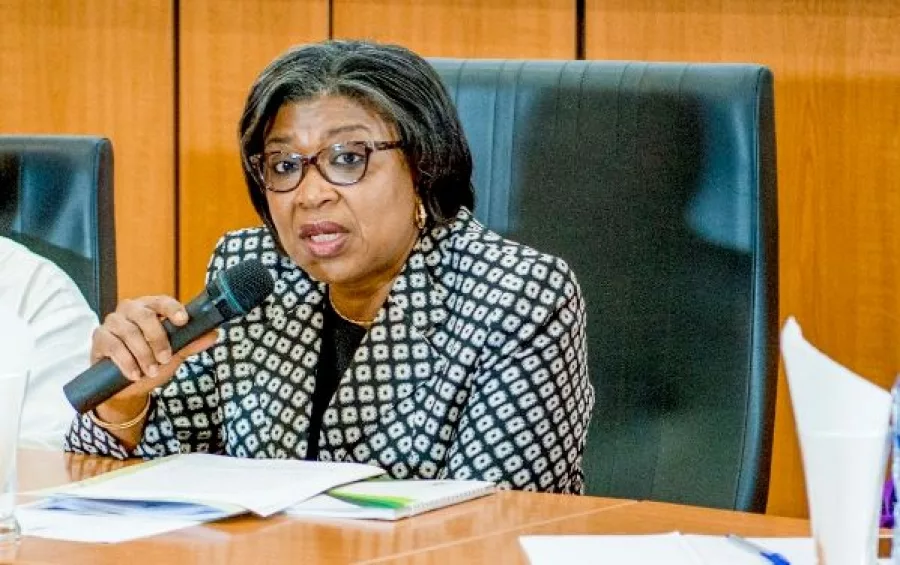With a debt crisis looming over Nigeria as it turns a new corner into a new administration, calls have been made for the stirrers of the affairs of the country have been urged to take decisive steps towards reducing the debt burden of the country.
The National Assembly recently approved the securitization of the N22.7 trillion Ways and Means as the country grapples with a debt overhang of over N77 trillion and the need to increase revenue generation to meet expenditure requirements.
As at December 31, 2022, Nigeria’s total public debt stock stood at N46.25 trillion according to data by the Debt Management Office (DMO), as analyst warn that the debt overhang of the country could cross N80 trillion by the time the present administration leaves office.
The challenge of the debt overhang is worsened by the low revenue generation of the country as Nigeria spent 96.3 percent of revenue on debt servicing in 2022. This had made the Director-General of the Budget Office of the Federation, Ben Akabueze, note that Nigeria’s borrowing space keeps reducing due to the inability to service debt.
He stated that “once a country’s debt service ratio exceeds 30 percent, that country is in trouble and we are pushing towards 100 percent and that tells you how much trouble we are in. We have limited space to borrow.”
To this end, it had become imperative for the government to find a way of the debt quagmire. Chief Executive of the Center for the Promotion of Private Enterprise (CPPE), Dr Muda Yusuf, listing out ways the country could reduce its debt burden stressed that the first thing to do is to remove fuel subsidy.
Having kicked down the bucket of fuel subsidy removal from last year to June this year, there has been talks of another shift in the deadline for removal of the subsidy which is budgeted to gulp nearly N4trillion for a period of six months.
According to Yusuf, the federal government can generate a minimum of N10 trillion annually from the removal of fuel subsidy as well as elimination of the Central Bank of Nigeria (CBN) subsidized foreign exchange window.
The CPPE CEO while stating that elimination of fuel subsidy could save an estimated N7 trillion annually in revenue, furthered that “elimination of foreign exchange subsidy to unlock a minimum of N3 trillion revenue annually from the sale of CBN forex to the official foreign exchange window.”
The International Monetary Fund having warned that Nigeria alongside its peers would have hard time raising funds from the international market due to rising costs of borrowing as well as uncertainties surrounding the global economic environment, had advised an increase in taxes to raise more revenue and reduce debt.
IMF deputy divisional chief, Wenjie Chen, had noted that “virtually all the frontier markets have been shut out of the Eurobond markets since the spring of 2022. What that means is that they cannot raise financing on these international markets.”
Thus affirming the call for increased tax to get more revenue and reduce borrowing. Having noted in its April 2023 Fiscal Monitor titled “On the path to Policy Normalisation” that Nigeria’s debt is projected to keep rising, the Brentonwood institution stressed that necessary steps must be taken to generate needed revenues.
Division chief, Fiscal Affairs Department, IMF, Paulo Medas, commenting said “what we are saying about Nigeria is the need for a medium-term plan to reduce debt vulnerabilities over time and is because Nigeria has very low tax revenues. So, that makes it more vulnerable to these types of shocks and tightening global conditions.
“What we advocate is raising taxes which is going to create space not only to manage debt but also to spend on other priorities. And the other part of what we say is that Nigeria has not benefited as much from the windfall of the oil prices in the past because a lot of it has been spent on these untargeted energy subsidies.
“By shifting to more targeted subsidies, you can reduce the fiscal deficit, and you can use that resources on other priorities that actually can promote higher growth in the future such as education, and health, and reduce the deficit. So having more targeted energy subsidies actually can be very beneficial both for fiscal, debt dynamics, and growth.
“Nigeria should broaden the tax space, improving tax compliance so Nigeria has one of the lowest tax revenues in the world as a share of GDP. So, there’s a lot of room for increasing the tax base and improving tax compliance.”





